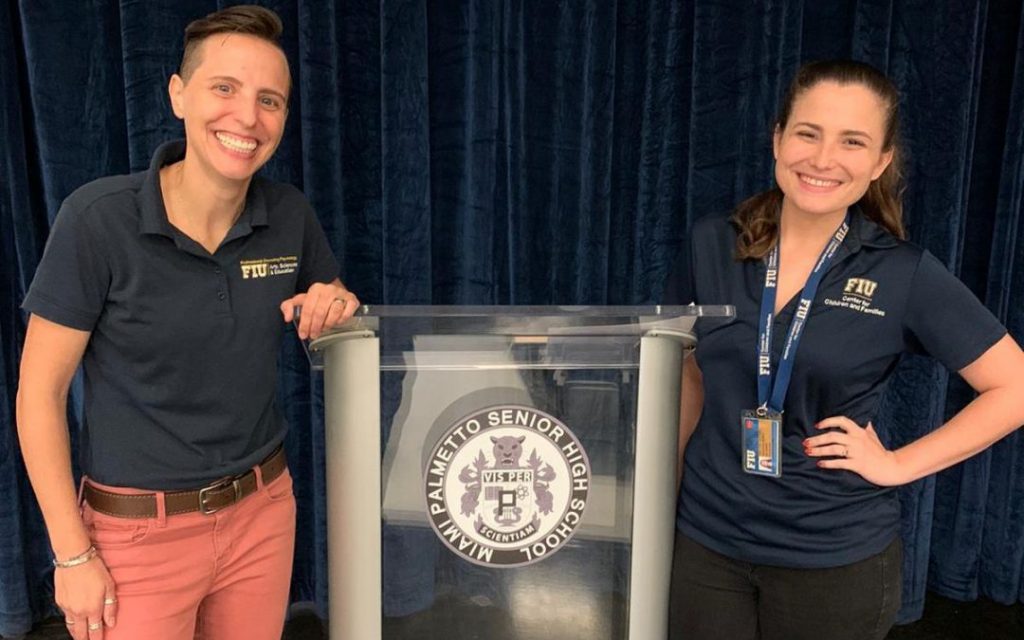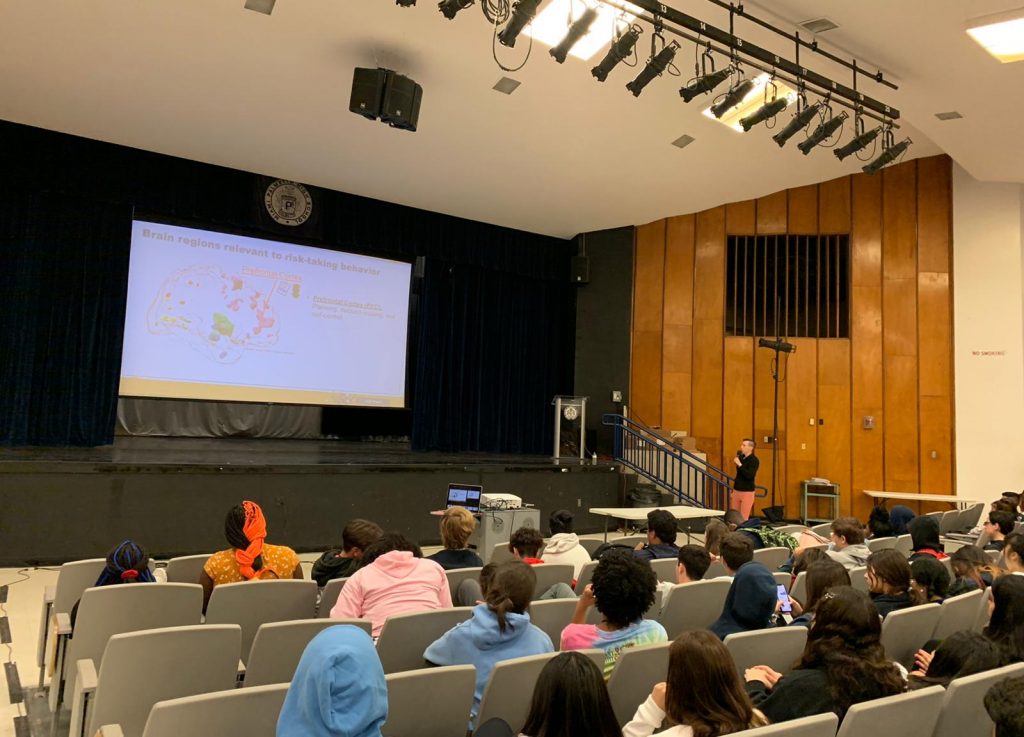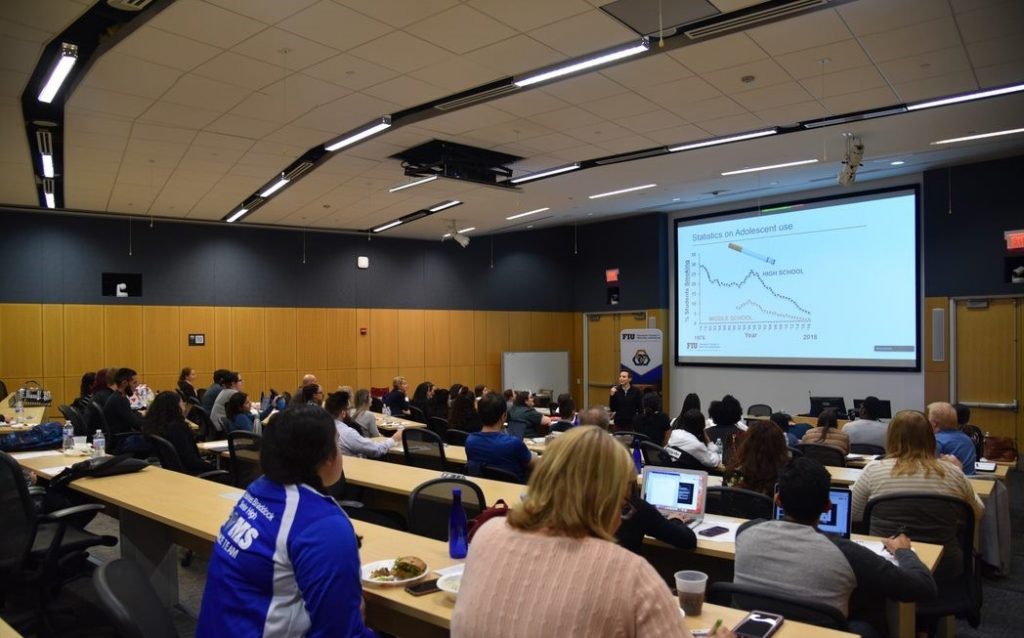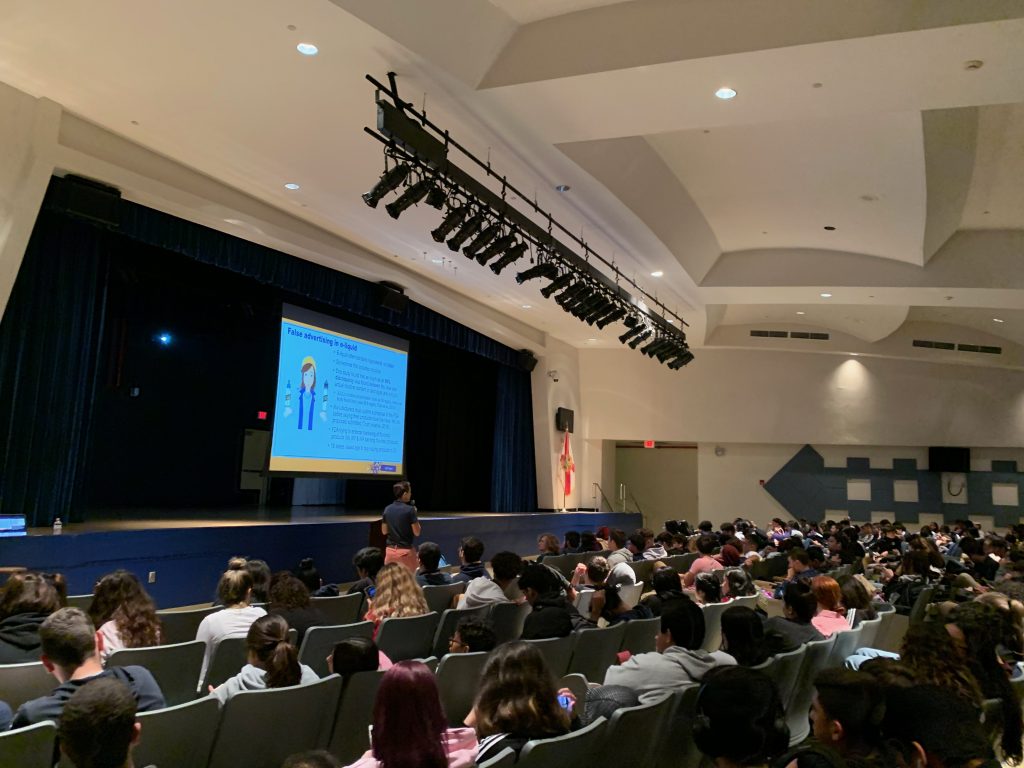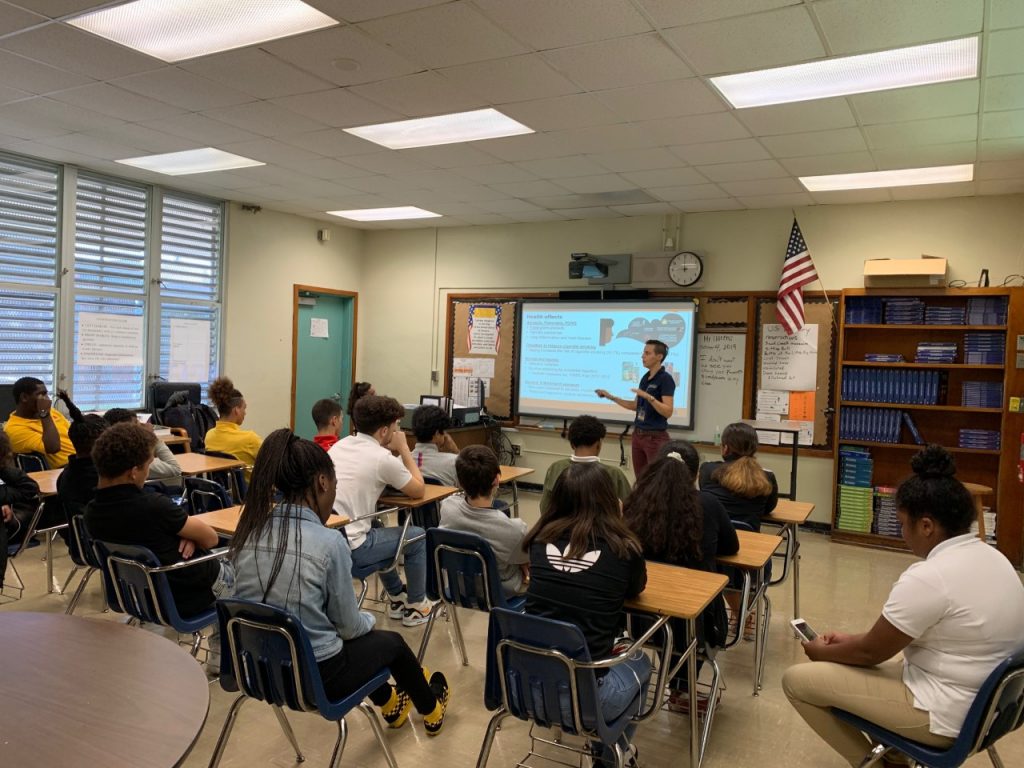17 Dec The ACE Project Finishes 2019 Strong with Community Outreach Efforts
The ACE Project is finishing up the year strong by hosting several community outreach events at local Miami-Dade County Public Schools and Student Success Centers (SSC).
In the past week, Co-Principal Investigator, Dr. Matthew Sutherland, and Senior Research Assistant, Brigitte Madan, have visited and presented at two Student Success Centers. On December 3rd, the duo visited Overtown Youth Center and on December 10th, they visited Homestead Senior High. The SSC’s serve as a space where students ages 11 and over can receive academic and counseling support after exhibiting infractions of the Code of Student Conduct. Dr. Sutherland and Ms. Madan educated over 30 students on the harms associated with e-cigarettes/vaping use in adolescence.
The ACE Project team then continued their outreach efforts by spending two consecutive days giving a series of educational presentations at Miami Palmetto Senior High. On December 5th, Co-Principal Investigator, Dr. Elisa Trucco, and Ms. Madan gave two presentations on e-cigarettes, resulting in over 1300 students learning more about the negative effects of vaping on the brain and body. On the next day, Program Coordinator, Nasreen Hidmi, Intake Specialist, Odette Manresa, and Ms. Madan, along with graduate students Patricio Viera Perez and Katharine Crooks, gave 27 classroom presentations at Miami Palmetto. They also set up a lunch-time information table where students were able to ask questions openly and receive more information relating to the negative effects of e-cigarettes/vaping. Over 350 students showed interest in participating in the ACE Project at Miami Palmetto Senior High.
In the past year, The ACE Project team have completed 29 community outreach events and have presented to over 5000 students and school professionals. They continue to partner up with M-DCPS middle and high schools, and their Student Success Centers, to inform the youth on the dangers of developing a dependency on nicotine from e-cigarettes/vaping. The ACE Project focuses on discovering how certain factors can influence a teen’s behavior and beliefs about substances during high school in order to understand and improve prevention efforts.
- Dr. Elisa Trucco and Brigitte Madan
- Dr. Matthew Sutherland presenting
- (From left to right): Patricio Viera Perez, Odette Manresa, Nasreen Hidmi, Brigitte Madan, Katharine Crooks
- Dr. Elisa Trucco presenting



